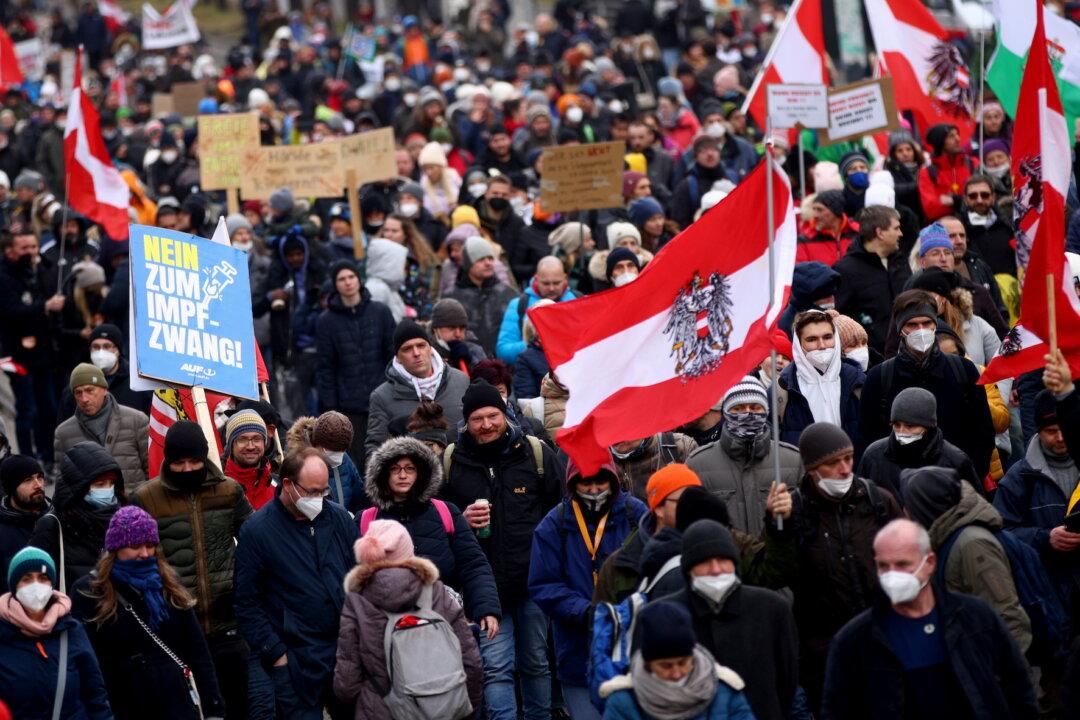Austria edged closer to implementing a compulsory COVID-19 vaccination mandate for most adults on Thursday after parliament’s lower house voted in favor of the proposal.
A majority of MPs backed the bill by 137 votes to 33, according to local reports. It is now expected to pass parliament’s upper house before being signed by President Alexander Van der Bellen.




